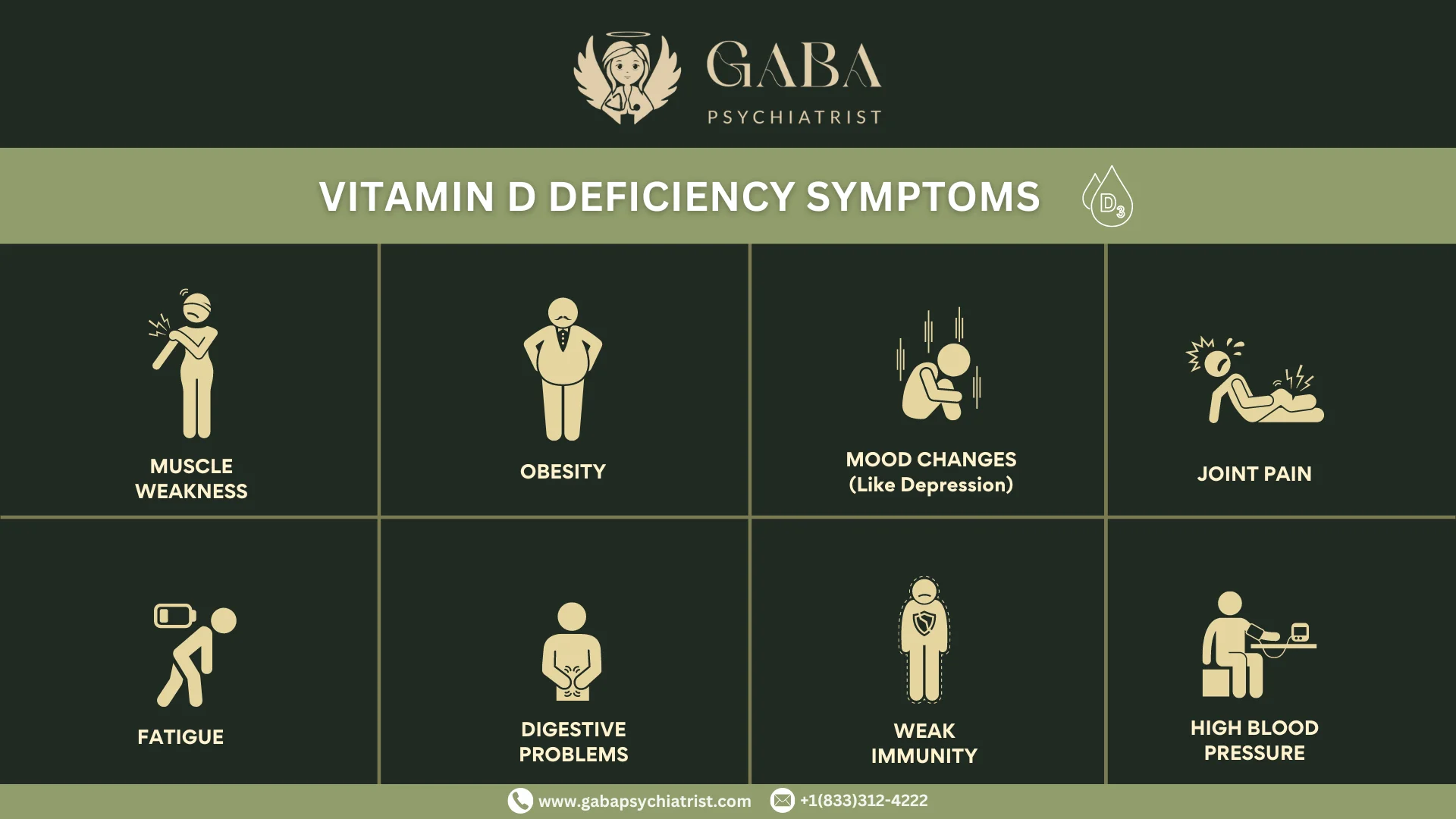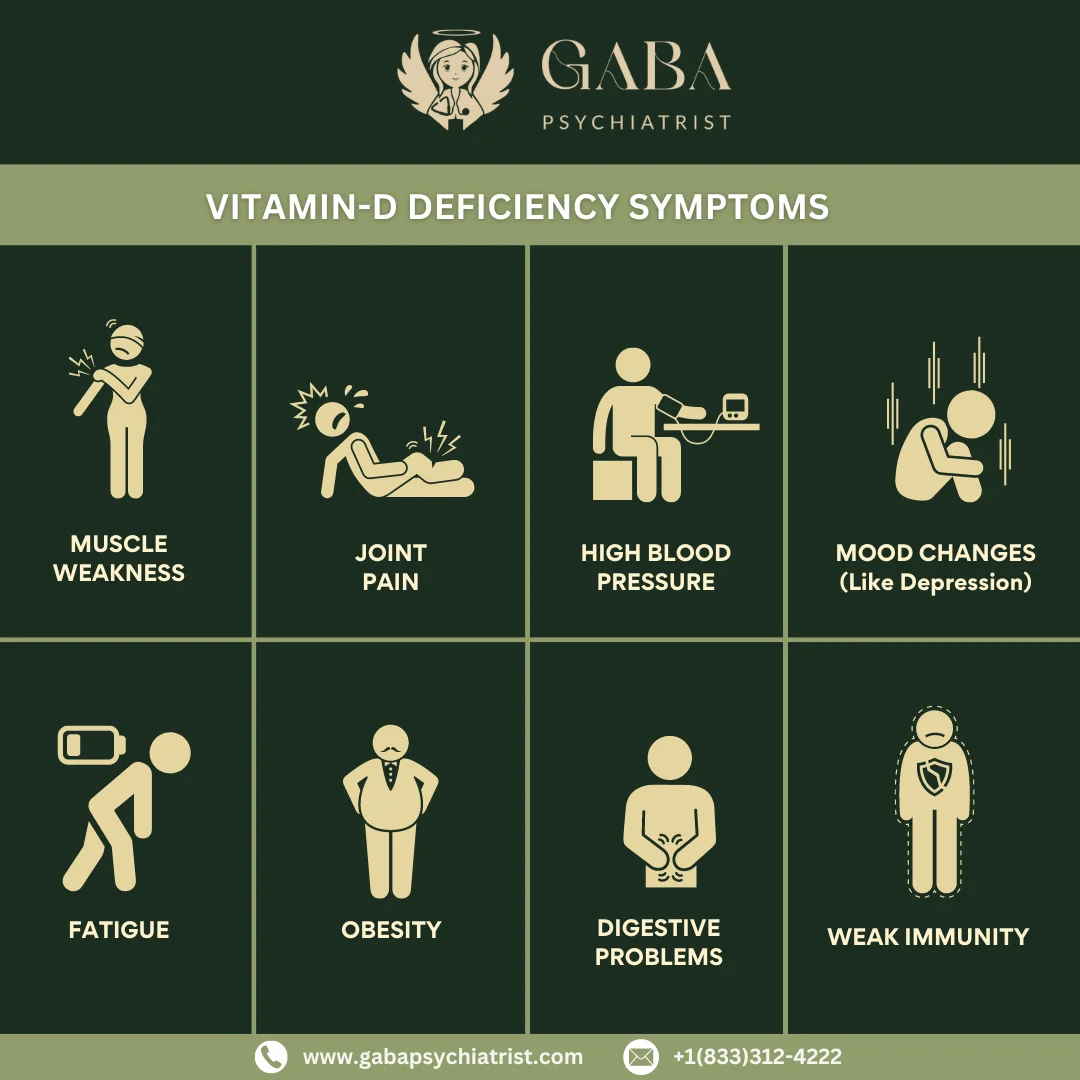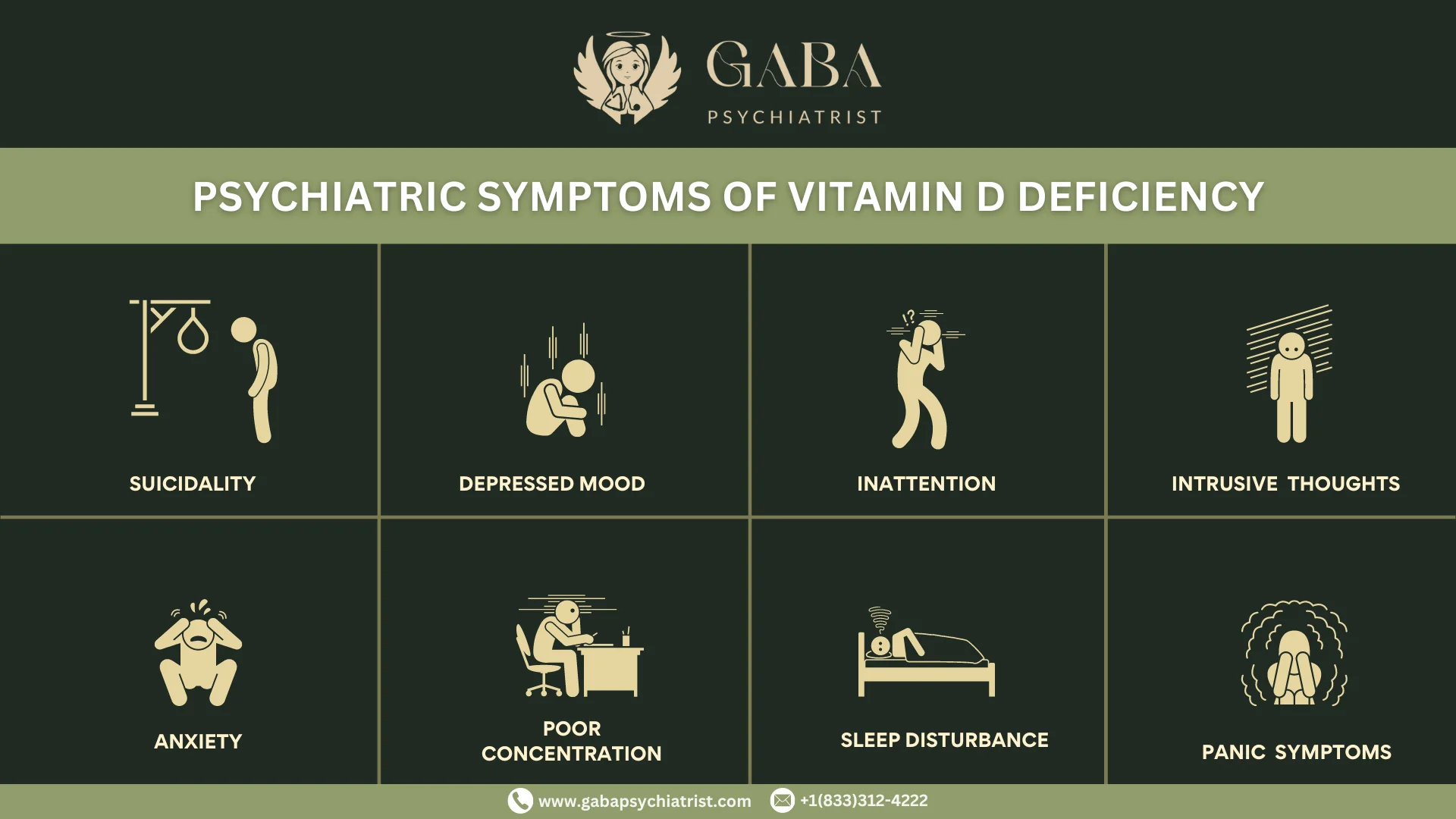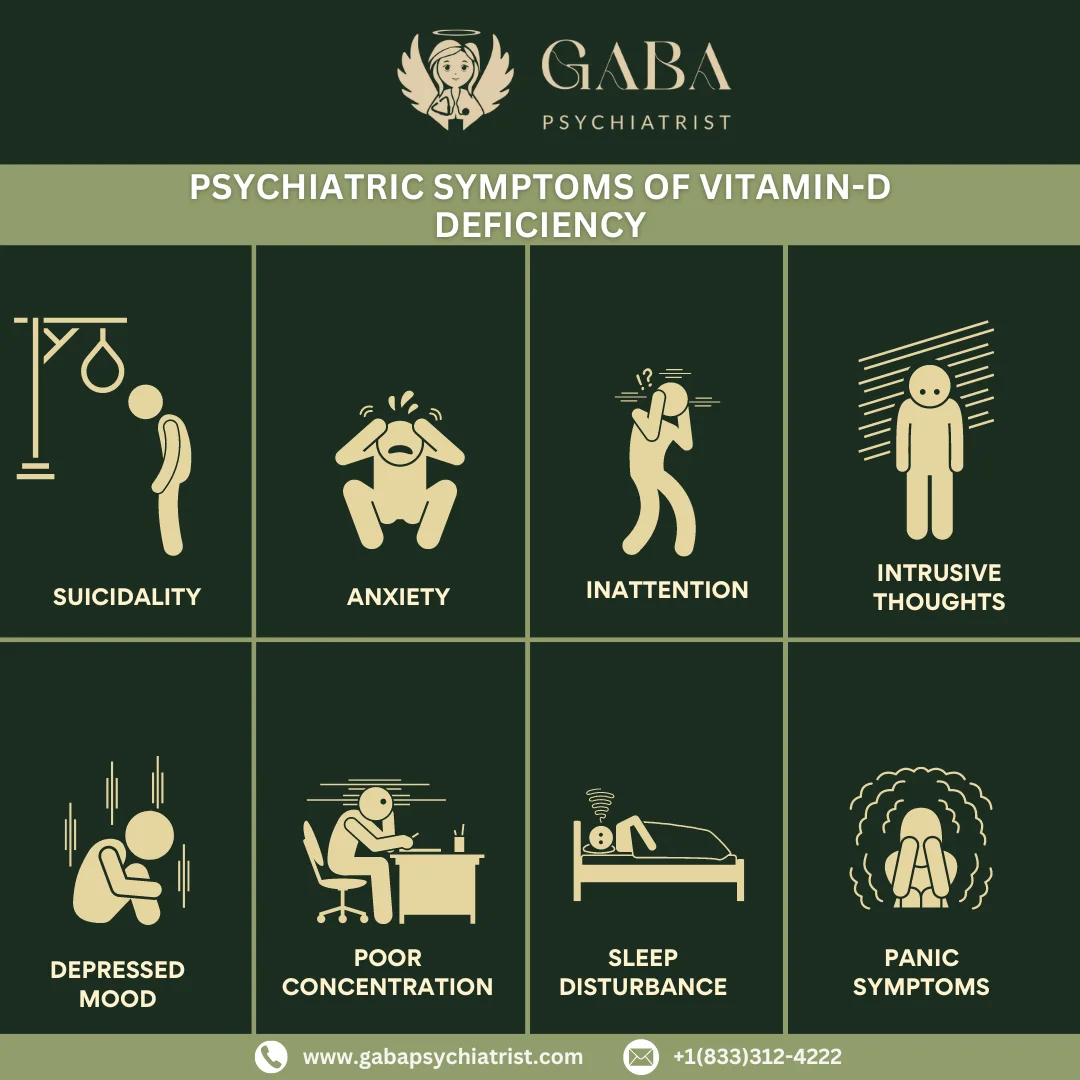Vitamin D is sometimes called the sun-shine vitamin. It is essential for the efficient working of the brain and heart. Vitamin D is considered a crucial nutrient for calcium absorption and homeostasis; thus, it helps in maintaining bone health and metabolism.
Healthcare providers don’t usually advise routine checks of vitamin D levels. Still, they might need to check if a person has certain medical conditions or risk factors for vitamin D deficiency and have symptoms of it.
A disruption in any part of the vitamin D physiological pathway can result in vitamin D deficiency, which may lead to bone pain, muscle weakness, falls, low bone mass, and fractures.
To use vitamin D in the body, first, the liver must change it into another form called 25 hydroxyvitamin D, or 25(OH)D. Most vitamin D blood tests measure the level of 25(OH)D in the blood to screen for low levels of vitamin D so that it can be treated with supplements before it causes health problems.
In chronic and/or severe vitamin D deficiency, a decline in calcium and phosphorus absorption by the intestines leads to hypocalcemia (low calcium levels in your blood). This leads to secondary hyperparathyroidism (overactive parathyroid glands attempt to keep blood calcium levels normal).
Recognizing the signs and symptoms helps physicians diagnose and prescribe appropriate treatment.
Symptoms of Vitamin D Deficiency
- Muscle weakness
- Joint pain
- High blood pressure
- Fatigue
- Mood changes, like depression
- Obesity
- Digestive problems
- Weak immunity
Vitamin D Deficiency and Muscle Weakness
Muscle weakness refers to a decrease in the strength of muscles, making it difficult to perform everyday tasks that require physical effort. It can affect a specific muscle or group of muscles, or it may be more generalized, affecting multiple muscle groups. Muscle weakness can be temporary or chronic and can range from mild to severe.
Vitamin D deficiency can result in muscle weakness for several reasons. One primary reason is that vitamin D plays a crucial role in calcium absorption, which is essential for muscle function. When vitamin D levels are low, the body isn’t able to properly absorb calcium and phosphorus, which leads to muscle weakness.
Additionally, vitamin D deficiency can contribute to bone pain and muscle fatigue, which can further contribute to weakness. Vitamin D is also involved in muscle protein synthesis and function, so its deficiency can directly affect muscle strength.
Vitamin D Deficiency and Joint Pain
Joint pain refers to discomfort, aches, or soreness in any of the body’s joints, which are the connections between bones. Joint pain can range from mild to severe and can be acute or chronic. It can affect one or more joints and may be accompanied by swelling, stiffness, redness, warmth, or a decreased range of motion.
Vitamin D plays an important role in maintaining bone health and its deficiency can lead to a condition called osteomalacia in adults, which is characterized by weak, soft bones and can cause bone or joint pain. Therefore, joint pain can be a symptom of vitamin D deficiency.
Low levels of vitamin D can contribute to reduced calcium absorption in the body, which may affect bone health and contribute to joint pain.
Vitamin D Deficiency and High Blood Pressure
High blood pressure, also known as hypertension, is a common condition in which the force of blood against the walls of the arteries is consistently too high. Blood pressure is measured in millimeters of mercury (mmHg) and is recorded as two numbers: systolic pressure and diastolic pressure.
Vitamin D deficiency is associated with an increased risk of high blood pressure (hypertension) because it plays an important role in regulating the renin-angiotensin-aldosterone system, which helps to regulate blood pressure. When vitamin D levels are low, this system may become dysregulated, potentially leading to higher blood pressure.
Vitamin D Deficiency and Fatigue
Fatigue is a feeling of extreme tiredness or lack of energy that can make it difficult to carry out daily activities. It can be acute, lasting for a short period, or chronic, lasting for weeks, months, or even longer.
Fatigue and weakness are the most common symptoms of vitamin D deficiency. From the studies, it has been confirmed that Vitamin D plays a crucial role in various bodily functions, which include energy production. Generally, when Vitamin D levels are low, it can lead to feelings of fatigue and general tiredness.
Vitamin D deficiency mostly impacts muscle function, which contributes to weakness and fatigue.
Vitamin D Deficiency and Depression
Depression is a type of serious mood disorder that can negatively affect how you feel, think, and react. It causes feelings of persistent sadness, a loss of interest in once enjoyable activities, and many physical and emotional problems. Depression may interfere with your ability to properly function at work, school, or in relationships.
Vitamin D receptors are found throughout the brain (such as the hippocampus), including areas involved in the development of depression. Vitamin D also plays an important role in the synthesis of neurotransmitters such as serotonin, which are important for mood regulation.
In addition to this, Vitamin D has anti-inflammatory effects, and inflammation has been linked to depression. Vitamin D deficiency may contribute to increased inflammation, which could in turn affect mood. It has been observed that vitamin D deficiency is associated with an increased risk of depression.
Vitamin D Deficiency and Obesity
Being overweight refers to having more body weight than is considered normal or healthy for one’s height. It is typically assessed using the body mass index (BMI), which is calculated by dividing a person’s weight in kilograms by the square of their height in meters (kg/m²).
According to the World Health Organization (WHO), a BMI between 25 and 29.9 is considered overweight, while a BMI of 30 or higher is considered obese.
Vitamin D may play a role in regulating appetite and metabolism, so low levels of vitamin D could potentially lead to overeating and weight gain. Additionally, vitamin D deficiency has been linked to conditions like insulin resistance, which can contribute to weight gain.
Vitamin D Deficiency and Digestive Problems
Digestive problems refer to issues or disorders related to the digestive system, which breaks down food, absorbs nutrients, and eliminates waste.
It has been observed that there is a link between vitamin D deficiency and digestive problems. However, some conditions associated with low vitamin D levels, such as inflammatory bowel disease (IBD) or celiac disease, can cause digestive issues.
Inflammatory bowel disease, including Crohn’s disease and ulcerative colitis, can lead to malabsorption of many nutrients, including vitamin D, which can contribute to deficiency. Similarly, celiac disease, an autoimmune disorder triggered by gluten consumption, can lead to malabsorption issues, potentially affecting the absorption of vitamin D.
Vitamin D Deficiency and Immune System
Weak immunity refers to a decreased ability of the immune system to defend the body against pathogens, such as bacteria, viruses, and other harmful substances. A weak immune system can result in frequent infections, slow healing of wounds, and increased susceptibility to illnesses.
Vitamin D plays a vital role in regulating the immune system. It helps regulate the function of various immune cells, including T cells and macrophages, which are crucial for fighting infections. It can also stimulate the production of antimicrobial peptides, which are part of the innate immune response and help defend against pathogens.
In addition to this, Vitamin D can modulate inflammatory responses, which are important for fighting infections. When vitamin D levels are low, it can impair the immune response.
Vitamin D Deficiency Psychiatric Symptoms
Psychiatric symptoms are mental health symptoms that can occur when a person has low levels of vitamin D. It affects a person’s thoughts, feelings, or behaviors and is related to mental health conditions.
Some of the symptoms are mentioned below:
- Suicidality
- Depressed mood
- Inattention
- Intrusive thoughts
- Anxiety
- Poor concentration
- Sleep disturbance
- Panic symptoms
Vitamin D Deficiency and Suicidal Thoughts
Suicidality refers to thoughts, behaviors, or actions related to suicide. It encompasses a range of experiences, from thoughts about death to detailed plans for taking one’s own life. It is considered a serious concern and requires immediate attention and intervention from mental health professionals.
Suicide attempters in most of the studies were deficient in vitamin D. So, vitamin D deficiency could be a contributing factor to the elevated pro-inflammatory cytokines reported in suicidal patients.
Serotonin is important for mood stability. Vitamin D deficiency results in low serotonin. Therefore, low levels of serotonin have been associated with an increased risk of suicidal behavior.
Vitamin D Deficiency and Depressed Mood
A depressed mood is one of the psychiatric symptoms that have been associated with vitamin D deficiency. A depressed mood, also known as sadness or the blues, is a common human emotion that everyone experiences from time to time. It is a normal reaction to loss, life struggles, or an injured self-esteem. When it lasts for an extended period, it may indicate clinical depression.
Vitamin D has immunomodulatory, neuroprotective, and neurotrophic properties and may affect the brain tissues involved in the pathophysiology of depression. Research suggests that low levels of vitamin D result in low serotonin levels, which regulate mood. Hence, it may be linked to an increased risk of depression.
Vitamin D Deficiency and Inattention
Inattention refers to difficulty in focusing on a task, sustaining attention over some time, or getting distracted easily. In this, a person experiences trouble organizing tasks, and usually commits careless mistakes, or fails to follow instructions or duties.
Vitamin D receptors are found in areas of the brain involved in attention and focus, such as the prefrontal cortex. This area plays a vital role in the synthesis and regulation of neurotransmitters like dopamine, which are important for attention and focus. It has been studied that Vitamin D may influence the development and function of the brain, including areas involved in attention. So, vitamin D deficiency during critical periods of brain development could potentially impact attentional processes. Therefore, a sufficient level of vitamin D is necessary for proper brain processes.
Vitamin D Deficiency and Intrusive Thoughts
Intrusive thoughts can come from nowhere; they can be unwanted, involuntary thoughts, images, or ideas that are disturbing or distressing. These are often unpleasant. These thoughts can be for a short time or persistent, and sometimes they may also feel difficult to control. In most cases, intrusive thoughts do not have any particular meaning. Intrusive thoughts are not harmful if a person recognizes that they are only thoughts and doesn’t have any desire to act on them.
Intrusive thoughts are often associated with conditions like obsessive-compulsive disorder (OCD) or anxiety disorders, rather than directly with nutritional deficiencies. Vitamin D receptors are found in areas of the brain involved in mood regulation and performing cognitive functions, and apart from this, they play an important role in the synthesis and regulation of neurotransmitters like serotonin, which can influence intrusive thoughts and mood. So, when Vitamin D levels decrease in the body, serotonin levels also decrease, and a person starts experiencing mood disorders, including intrusive thoughts, anxiety, or depression.
Vitamin D Deficiency and Anxiety
Anxiety is often described as feelings of worry, nervousness, or unease about something with an uncertain outcome, and sometimes feelings of fear and dread don’t go away or get worse over time. It can be a response to stress or a perceived threat and is often accompanied by physical sensations such as an increased heart rate, sweating, trembling, or feelings of tension.
It has been observed that oxidative stress and inflammation are involved in the pathophysiology of this mood disorder, along with many other diseases. Vitamin D, which has antioxidant properties and activity in brain tissue, is important for preventing many mood disorders like anxiety.
In addition, the hypothalamic-pituitary-adrenal (HPA) axis is a complex system involved in the body’s response to stress and anxiety. Vitamin D may influence the HPA axis, and due to low levels of vitamin D, there is dysregulation of this system, which results in anxiety disorders.
Vitamin D Deficiency and Poor Concentration
Poor concentration refers to difficulty focusing attention on a particular task or maintaining focus for some time on any activity. Sleep deprivation, stress, anxiety, and some medications can also cause concentration issues. It presents a significant cognitive health challenge, impacting productivity, relationships, and overall well-being.
Vitamin D also has anti-inflammatory effects, and it is observed that chronic inflammation is linked to cognitive impairment, which includes difficulties with concentration. Vitamin D deficiency may contribute to increased inflammation, which could affect concentration.
Other than this, dopamine and serotonin are involved in attention and focus. And vitamin D deficiency leads to a decrease in the level of these neurotransmitters, and deficiencies in these neurotransmitters can lead to poor concentration.
Vitamin D Deficiency and Sleep Disturbances
Sleep disturbances refer to disruptions in the normal sleep-wake cycle, where a person experiences difficulties falling asleep, staying asleep, or having restful sleep. Sleep disturbances can take many forms, such as insomnia (difficulty falling or staying asleep), sleep apnea (breathing pauses during sleep), restless legs syndrome (uncomfortable sensations in the legs that cause an urge to move them), and parasomnias (abnormal behaviors during sleep, such as sleepwalking or nightmares).
A meta-analysis was done to understand the relationship between vitamin D deficiency and sleep disorders, including poor sleep quality, short sleep duration, and sleepiness. Overall, the results showed that serum 25(OH)D levels were inversely associated with an increased risk of sleep disorders, which means low levels of serum 25(OH)D can result in sleep disturbance.
In the brain, the hypothalamus is also involved in the regulation of the sleep-wake-cycle, and it has been researched that vitamin D receptors are present in the hypothalamus. So, a deficiency of vitamin D affects the activity of the hypothalamus and results in sleep cycle disturbance. Other than this, serotonin levels directly affect the quality of sleep. A deficiency of vitamin D leads to a decrease in serotonin levels and hence disturbs the quality of sleep.
Vitamin D Deficiency and Panic Symptoms
Panic symptoms refer to the physical and psychological symptoms experienced during a sudden panic attack. Panic attacks are sudden, with intense episodes of fear or discomfort that can peak within minutes. Therefore, panic attacks can be very frightening. Some of its symptoms include rapid heart rate, sweating, trembling, discomfort, nausea, shortness of breath, and even fear of dying.
Although panic attacks themselves aren’t life-threatening if they’re recurrent, then maybe the person has a condition called panic disorder.
It has been concluded previously that vitamin D plays a major role in brain function and mood regulation; therefore, low levels of Vitamin D have been associated with mood disorders such as panic attacks. If the situation worsens, a person is advised to consult a health professional.






